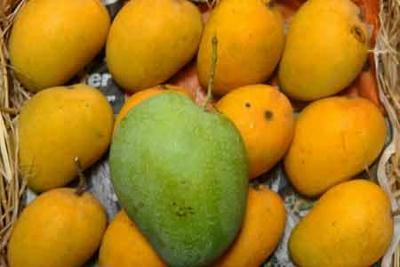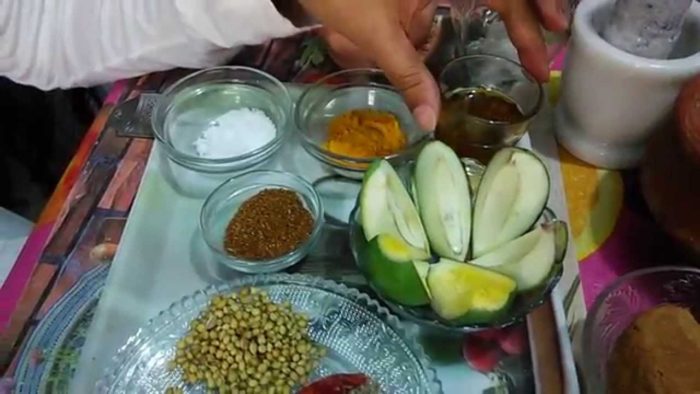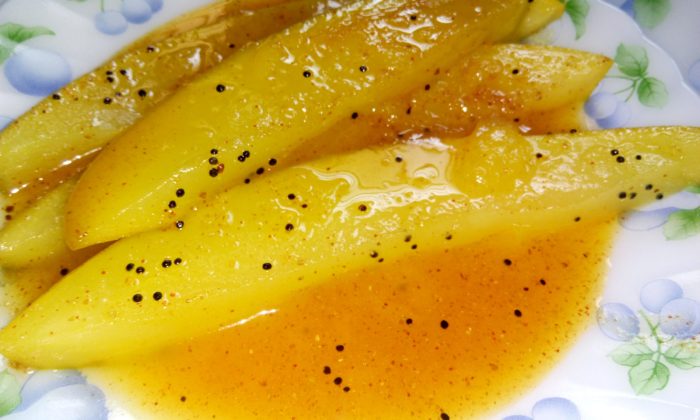
Courtesy: Times of India
Summer is fascinating in India.
Yes, it is hot. It could be very hot. In some places, like Rajasthan or Punjab, it is extremely hot. In Bengal or Tamil Nadu, it is more humid than hot. It could be very uncomfortable. And not too many people have air conditioner. The poorest of the poor don’t even have a fan in their home.
That is all true. But at the same time, summer brings out nature’s best gifts for the people in India. It’s the fruits. It’s the vegetables. It’s the flowers. It’s the treasure that Mother Nature has saved for the tropics. Those who have never lived in India in summer would not truly understand how much life an otherwise scorching sun can bring.
Solar energy is abundant, very abundant in India. The men, women and children are saved and sustained by the light of the sun. Sun keeps them healthy. By the heat it sends out, and by the blessings it sends down on earth – to produce an incredible abundance of food.
If I didn’t tell you, you wouldn’t believe that only in a place like West Bengal or Bangladesh, you can get at least one thousand different varieties of mango in summer. You can find mangoes in every state, every city, and every village across India — Benaras or Bombay, Madras or Mysore, Agra or Assam. And they come in so many different shapes and sizes.
Some are big, like the size of a football. Some are tiny – like the size of a litchi. Some are deep red, and people in North and East India call them “sindur aam,” meaning vermillion-colored mango. Some are peach colored. Apricot colored. Some are absolutely beautiful green, even when they are ripe and juicy. And then, of course, you can have green mangoes, when they are green. People in India, especially children, find great pleasure to eat raw mango, with a pinch of salt, or some with a dash of chili powder laced over the pieces.

Mango pickle in the making
Across India, people dry green mango pieces in the sun – mostly putting them out on the roof for a few days, and then they pickle them in glass jars, using incredibly flavorful and enticing spices. Most mango pickles are done in mustard oil. And then, many people make sweet relishes out of green mango – either cooking them very slowly in sugar syrup, mixed with whole mustard seeds, or preserving them in various types of sweet sauce. One of the sweet mango relishes is called chutney – a very popular end-of-the-meal delicacy across India.
Because practically half of the one billion-plus Indian people are vegetarian, and also because Hindu widows are traditionally vegetarian, millions of Indians use mango, tamarind, cauliflower, papaya and berry pickles – both sour and sweet – to eat their rice or hand-made wheat breads, all year long. It is practically impossible to find an Indian household with no mango pickle jars on their kitchen cabinets.
Summer in India also brings out thousands of varieties of flowers. Some of the most fragrant summer flowers are white, and bloom in the night. The famous Indian tuberose or“Rajanigandha” (meaning nightly fragrance), and Jasmine have featured Indian poetry and novels through ages. Our poet Rabindranath Tagore’s birthday in summer is incomplete without a bunch of blooming, fragrant tuberose.
Street foods are also special during summer. Peddlers bring out their yummy delicacies, mostly in the afternoon and evening; and in India, they never have any lack of customers. Children, of course, are their most dedicated audience.

Tagore and the Tuberose
I remember, during school days, we would have a long summer vacation when after doing our required one-hour math and handwriting practice session in early afternoon, we would eagerly wait for the street peddlers’ special selling calls. Here comes the blackberry man. Here comes the green mango man. Here comes the pakora-walla. Here comes the watermelon-walla.
Those of us who were fortunate to have rooftop on our own houses, late in the evening, way after the sun went down, we would sprinkle water on the very hot rooftop to cool it down, and then lay out thin mats, where we and our elders would sit and chat for hours. We would have puffed rice laced with mustard oil-made mango pickles, and a generous serving of eggplant or onion fritters.
The moon would jealously look down on us.
Summer is very, very nostalgic.
###

Mango chutney with mustard seeds. Yum!
